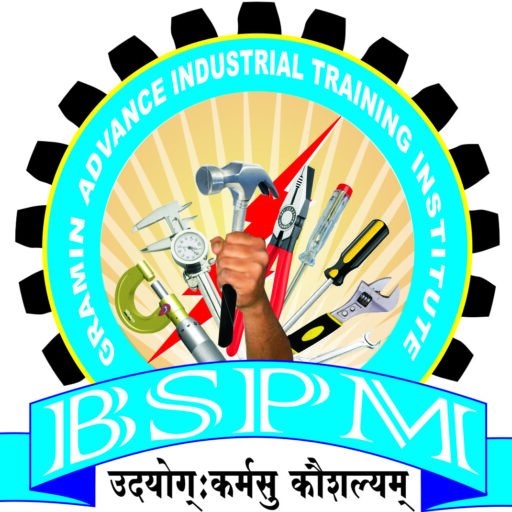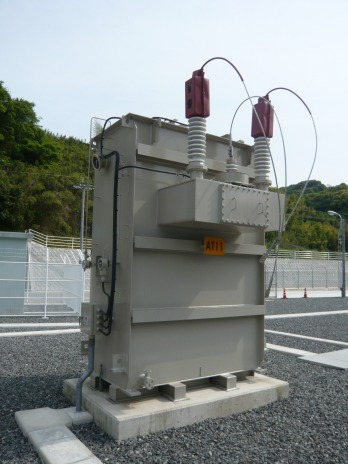The Future of Health: How Medical Research is Revolutionizing Trading
The Future of Health: How Medical Research is Revolutionizing Trading
The world of trading, often seen as a fast-paced arena driven by financial data and market trends, is experiencing a quiet yet profound revolution. This transformation isn’t stemming from new algorithms or economic policies, but from an unexpected source: medical research. As our understanding of human health, biology, and disease progresses at an unprecedented rate, a new frontier in trading is emerging – one that leverages cutting-edge medical discoveries to inform investment strategies, identify burgeoning markets, and even predict societal shifts.
This isn’t about day trading based on a new drug trial’s stock price, though that’s certainly a part of it. This is about a much deeper integration, where the very fabric of medical science—from genomics and personalized medicine to public health trends and biotechnological breakthroughs—becomes a critical lens through which traders view the global economy. For those who can effectively navigate this complex intersection, the opportunities are immense.
The Rise of Bio-Intelligence: Understanding the Fundamentals
To truly trade on medical research, one must first grasp the fundamental shifts occurring within the healthcare landscape. These aren’t isolated advancements; they are interconnected revolutions that collectively reshape our world.
1. Genomics and Personalized Medicine: The completion of the Human Genome Project opened Pandora’s Box – in the best possible way. We’re moving beyond a one-size-fits-all approach to medicine. * Implications for Trading: Investment in companies developing targeted therapies, genetic testing kits, gene editing technologies (CRISPR), and bioinformatics platforms is skyrocketing. The ability to predict individual disease risk and tailor treatments creates entirely new markets and renders older, less precise methods obsolete. Traders need to track advancements in genetic sequencing, gene therapy trials, and the regulatory landscape surrounding these innovations.
2. Biotechnology and Pharmaceutical Innovation: The pace of drug discovery and development is accelerating. * Implications for Trading: Beyond tracking major pharmaceutical companies, traders must pay close attention to smaller biotech firms with groundbreaking pipelines. Understanding the science behind new drugs – their mechanism of action, target patient population, and potential market size – is crucial. This involves sifting through clinical trial data, FDA approvals (or rejections), and competitive analyses. The rise of biologics, mRNA vaccines, and cell therapies represents massive shifts in treatment paradigms.
3. Digital Health and AI in Medicine: The convergence of technology and healthcare is undeniable. * Implications for Trading: This encompasses everything from wearable health trackers and telemedicine platforms to AI-powered diagnostics and drug discovery. Companies developing innovative digital health solutions, AI algorithms for medical imaging, predictive analytics for disease outbreaks, and remote patient monitoring systems are prime investment targets. The data generated by these technologies also offers invaluable insights into population health trends.
4. Public Health and Global Trends: Pandemics, lifestyle diseases, and aging populations are not just health crises; they are economic seismic shifts. * Implications for Trading: A global pandemic, for instance, dramatically alters consumer behavior, supply chains, and government spending. Traders who understand the epidemiological data, the public health response, and the long-term health consequences are better positioned to anticipate market movements. Similarly, the global rise in chronic diseases like diabetes and heart disease drives demand for specific medical devices, pharmaceuticals, and health services. The aging population in many developed nations creates a boom in elder care, age-related disease treatments, and assistive technologies.
Strategies for Bio-Intelligent Trading
Integrating medical research into your trading strategy requires a multi-faceted approach, moving beyond simple stock tickers to a deeper understanding of scientific progress and its societal impact.
1. Deep Dive into Scientific Literature: This is the bedrock. While you don’t need a PhD in molecular biology, developing the ability to read and interpret scientific journals, clinical trial reports, and medical news is paramount. Platforms like PubMed, Nature, Science, and medical news outlets become your new financial news sources. Look for: * Phase I, II, and III Clinical Trial Results: These are critical milestones for new drugs and therapies. Positive results can send a company’s stock soaring; failures can lead to crashes. * Breakthrough Discoveries: Fundamental research breakthroughs, even if years away from commercialization, can signal the birth of entirely new industries. * Regulatory Approvals: FDA, EMA, and other regulatory body approvals are huge catalysts for market entry and revenue generation.
2. Follow Key Opinion Leaders (KOLs): Just as financial analysts influence markets, leading researchers, clinicians, and biotech entrepreneurs shape the medical landscape. Follow them on social media, read their publications, and attend industry conferences (or watch their recordings). Their insights can provide early indicators of promising technologies or potential pitfalls.
3. Understand the Regulatory Landscape: The medical field is heavily regulated. Changes in drug approval processes, medical device regulations, or healthcare policy can have massive financial implications. Staying abreast of legislative developments and health authority guidance is crucial.
4. Identify Cross-Sectoral Impacts: Medical advancements rarely stay within the healthcare silo. * Agriculture: Genetic modification in crops for better nutrition or disease resistance. * Technology: Development of new sensors, data processing capabilities for health tech. * Insurance: Predictive health insights influencing insurance models. * Food and Beverage: Demand for functional foods, health supplements based on nutritional science. * Real Estate: Development of medical research parks, specialized care facilities.
5. Long-Term Vision vs. Short-Term Catalysts: Medical research often involves long development cycles. Some investments will be long-term plays on foundational shifts (e.g., gene therapy), while others will capitalize on short-term catalysts like a positive clinical trial readout or an FDA approval. A balanced portfolio might incorporate both.
6. Thematic Investing: Instead of individual stocks, consider investing in broader themes. Examples include: * Anti-aging and Longevity: Companies focused on extending healthy human lifespan. * Neuroscience and Brain Health: Treatments for Alzheimer’s, Parkinson’s, mental health disorders. * Oncology Innovation: Next-generation cancer therapies. * Rare Diseases: Companies developing treatments for conditions affecting small patient populations, often with lucrative orphan drug designations. * Preventative Medicine: Technologies and services aimed at preventing disease before it starts.
The Indian Context: A Unique Opportunity
India, with its vast and diverse population, growing economy, and burgeoning scientific talent, presents a particularly fertile ground for trading based on medical research.
1. Pharma Hub: India is known as the “pharmacy of the world,” particularly for generic drugs. While generics are a stable market, the focus is shifting towards biosimilars, novel drug discovery, and contract research and manufacturing services (CRAMS). Tracking indigenous research and development (R&D) in these areas is crucial.
2. Digital Health Adoption: The penetration of smartphones and digital infrastructure is rapidly increasing, making India a prime market for digital health solutions, telemedicine, and health tech startups. Government initiatives like Ayushman Bharat Digital Mission are accelerating this adoption.
3. Medical Tourism and Healthcare Infrastructure: India is a global destination for medical tourism, driving investment in high-end hospitals and specialized medical services. This sector continues to grow, attracting capital into healthcare infrastructure development.
4. Public Health Challenges: India faces significant public health challenges, from infectious diseases to non-communicable diseases. This creates a massive demand for affordable diagnostic tools, vaccines, and treatment protocols, driving local innovation.
5. Biotech Ecosystem: While nascent compared to the US or Europe, India’s biotech ecosystem is growing, with increasing government support for research and startup incubation in areas like vaccine development, genomics, and agricultural biotechnology.
6. Ayurgenomics and Traditional Medicine Integration: India’s rich heritage in Ayurveda and traditional medicine is now being integrated with modern scientific research, leading to new areas of study and potential commercialization. Research into the efficacy and mechanisms of traditional remedies can open new investment avenues.
For traders in India, this means not only looking at global trends but also keenly observing domestic medical research institutes, biotech startups, and government health policies. The intersection of affordable healthcare solutions, technological adoption, and a massive addressable market makes India a unique laboratory and marketplace for medically-informed trading strategies.
Challenges and Risks
While the opportunities are vast, trading on medical research is not without its challenges:
High Volatility: Biotech and pharma stocks can be extremely volatile, especially around clinical trial results or regulatory decisions.
Scientific Complexity: Understanding the underlying science requires effort and continuous learning. Misinterpreting data can lead to poor decisions.
Long Timelines: Drug development is a lengthy process. Investments may not yield returns for many years.
Regulatory Hurdles: The path to market for medical innovations is fraught with regulatory challenges.
Ethical Considerations: As medical science progresses, ethical debates around gene editing, data privacy, and access to advanced treatments will intensify, potentially impacting public perception and market dynamics.
Conclusion: The Informed Trader’s Advantage
The integration of medical research into trading is no longer a niche strategy; it’s becoming an essential component of informed decision-making in the financial world. As humanity stands on the cusp of unprecedented advancements in health and longevity, those who can understand, interpret, and act upon these scientific breakthroughs will be uniquely positioned to identify the next wave of disruptive companies and market trends.
This isn’t just about making money; it’s about investing in the future of health, aligning financial success with scientific progress that benefits humankind. For the diligent, intellectually curious, and forward-thinking trader, the world of medical research offers not just profit, but purpose. By embracing “bio-intelligence,” traders can navigate the evolving landscape of global markets with greater foresight, making decisions that are both financially astute and deeply resonant with the progress of human endeavor.


